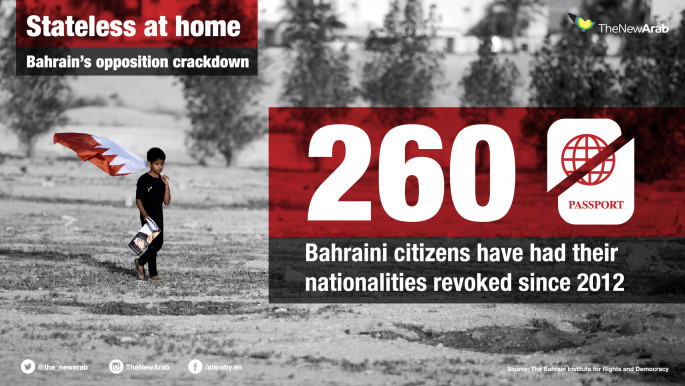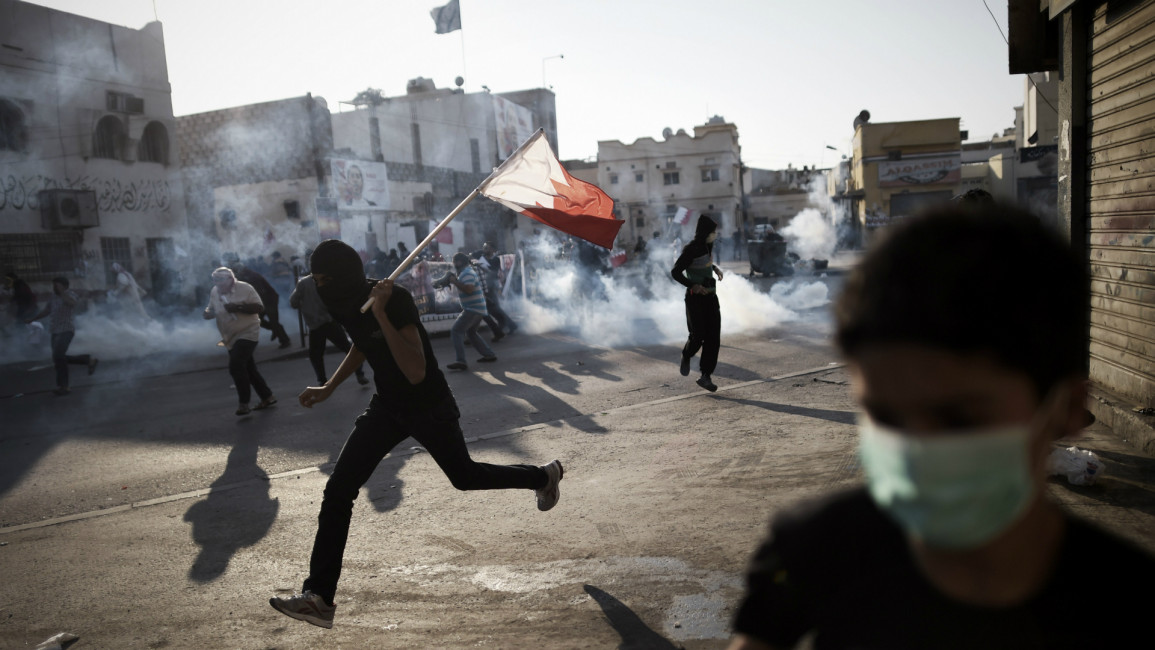US drops human rights conditions on Bahrain weapons sale
Donald Trump's administration told the US Congress it plans to approve the $5 billion sale of F-16 fighter jets to the Bahraini government, The New York Times reported on Thursday.
The sale of the 19 Lockheed Martin aircraft, and related equipment, had previously been held up due to concerns over human rights abuses in the Gulf kingdom, a key US ally in the region, housing a major American naval base.
Senator Bob Corker, chairman of the Senate Foreign Relations Committee, welcomed the decision to separate the sale from human rights requirements.
"This type of conditionality would be unprecedented and counterproductive to maintaining security cooperation and ultimately addressing human rights issues," Corker said in a statement sent to The New Arab.
"There are more effective ways to seek changes in partner policies than publicly conditioning weapons transfers in this manner."
 |
| Click to enlarge |
But Bahrain has been repeatedly criticised for its problematic human rights record, including a 2016 US State Department report that detailed "serious human rights problems" in the country.
These included citizens' limited ability to peacefully choose their own government, curbs to freedom of expression and assembly, a lack of due process, and the arrest and imprisonment without warrants or charges, "especially in cases against opposition members and political or human rights activists", the report found.
Human Rights Watch also said Bahraini courts "convict and imprison peaceful dissenters and have failed to hold officials accountable for torture and other serious rights violations".
Security officials have meanwhile been accused of using disproportionate force to stem peaceful protests or unrest. Bahrain quashed widespread, pro-democracy protests during the Arab Spring in 2011.
"Allowing the F-16 deal with Bahrain to continue sans restrictions could set a precedent for arms sales in the Gulf region and around the world - that the United States will not demand respect for human rights as a prerequisite for governments that wish to purchase American military weapons and equipment," non-profit group Americans for Human Rights and Democracy in Bahrain said last month.
Human rights provisions in weapons sales "set exactly the right precedent", the group said, "that the United States is committed to the promotion and protection of human rights and fundamental freedoms around the world".
In February, an anonymous US official told right-wing newspaper The Washington Times that the Trump administration was set to approve stalled weapons transfers to both Bahrain and Saudi Arabia.
"These are significant sales for key allies in the Gulf who are facing the threat from Iran and who can contribute to the fight against the Islamic State," the official said.
"Whereas the Obama administration held back on these, they're now in the new administration's court for a decision - and I would anticipate the decision will be to move forward."
Arab states in the Gulf often cite a perceived threat from Iran as a driving force behind their weapons imports, and a reason for their suppliers to justify the sales, according to the Stockholm International Peace Research Institute (SIPRI).
The US sold $33 billion worth of weapons to the Gulf Cooperation Council (GCC) countries - Bahrain, Saudi Arabia, United Arab Emirates, Oman, Qatar and Kuwait - in less than a year between 2015 and 2016, according to Fortune.
SIPRI data shows that all GCC countries, except for Bahrain, increased their weapons imports between 2007-2011 and 2012-2016.
Qatari imports increased by 245 percent between the two periods, compared with 212 percent in Saudi Arabia, 175 percent in Kuwait and 63 percent in the UAE. Bahraini imports, meanwhile, decreased by 19 percent.
Jillian Kestler D'Amours is a journalist based in Canada. Follow her on Twitter: @jkdamours


![The White House Correspondents' dinner is seeing renewed scrutiny amid Israel's war in Gaza. [Brooke Anderson/The New Arab]](/sites/default/files/styles/image_330x185/public/2024-04/IMG_5497.jpg?h=71976bb4&itok=iSygAqbR)